Month: March 2024
Roland opens its doors at Quito airport

Two Roland commercial islands located in the domestic and international commercial corridor of the Quito airport were inaugurated today with a special event. These new spaces will offer passengers a range of products ranging from pajamas and underwear to t-shirts, stuffed animals and accessories, aimed at men, women, boys and girls.
The opening ceremony was attended by authorities from Roland, Metropolitan Public Company of Airport Services and Corporación Quiport.

Ramón Miró, president and CEO of Quiport, shared his enthusiasm regarding this new addition: «The airport is not just a place of transit, it is a window to the world, a meeting point of cultures, ideas and people. And it is at this neuralgic point where Roland wants to be present to accompany our travelers every step of their journey. Whether they are setting off on an exciting adventure or returning home with stories to tell, we know that at Roland they will not only find garments of the highest quality, but also a reflection of the Ecuadorian identity and spirit.”
For his part, Munir Abedrabo, executive president of Mabel Group Holding, representative of Roland, expressed his gratitude for the opportunity to expand its presence to such a strategic location.
With this opening, Quito airport passengers now have the opportunity topurchase quality products while waiting for their flight or making last-minute purchases.
Temporary suspension of operations at the Quito airport due to preventive maintenance work on the runway
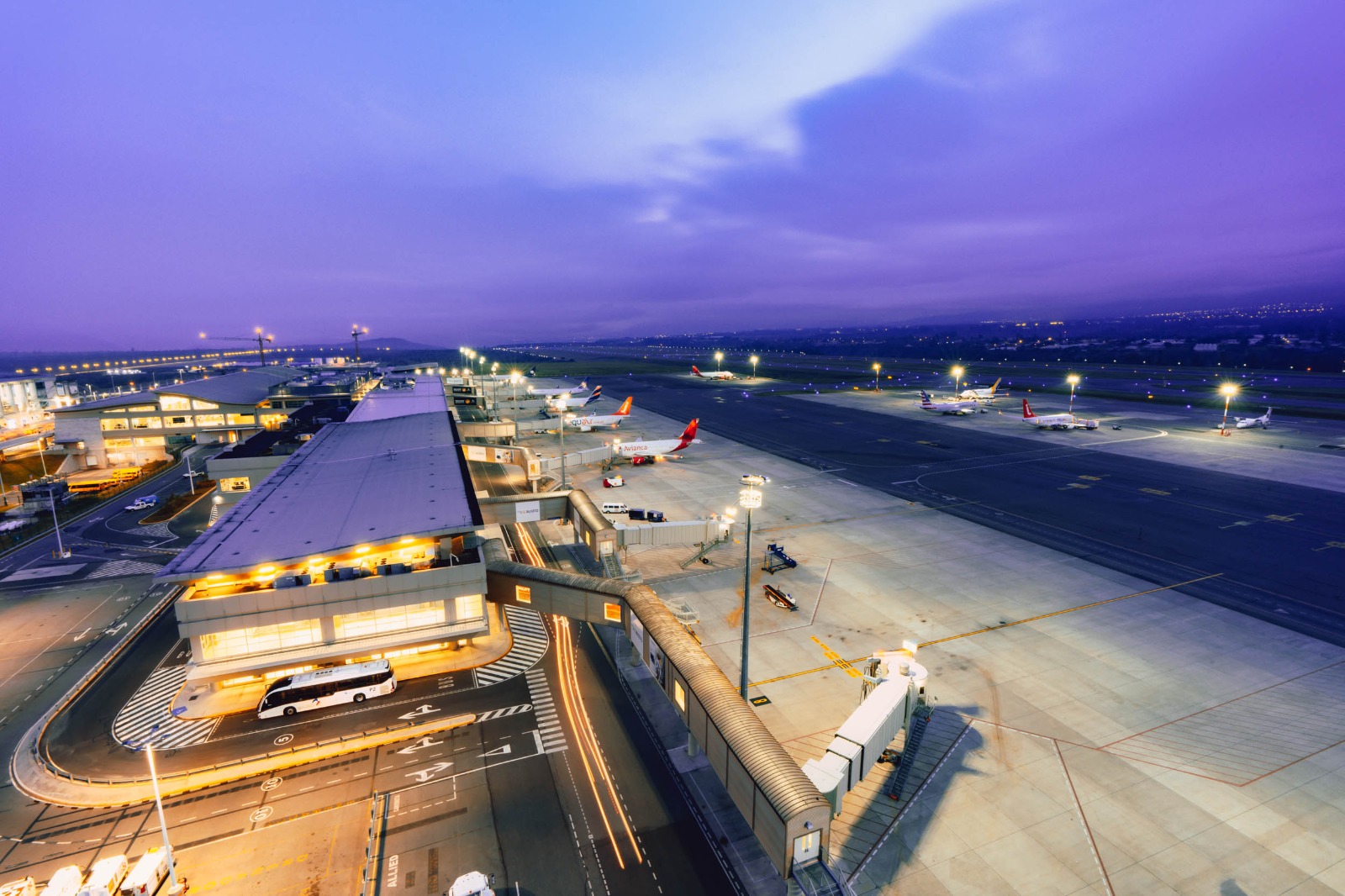
Corporación Quiport, concessionaire of the Quito International Airport, informs about the temporary suspension of air operations at the Mariscal Sucre airport due to preventive maintenance work on the runway.
The maintenance work, which will cover around 70,275 m2 on the runway, ensures efficiency and safeguards safety in air operations, as well as avoiding unexpectedclosures due to emergency corrective work.
The suspension of operations will take place on the following days and times:
– May 11 and 18, June 1, July 6, 13 and 20, September 7, 14 and 21 from 2:00 a.m. to 12:00 p.m.
– June 8, 15, 22 and 29 from 2:00 a.m. to 1:00 p.m.
The aerodrome closures have been coordinated and authorized by the General Directorate of Civil Aviation (DGAC). The airlines that operate at the Quito airport have already been informed of this need by Quiport and the DGAC through the respective NOTAM.
Airlines’ itinerary changes, rescheduling or flight cancellations will be informedopportunely, but we invite passengers who have scheduled flights on those dates and times to contact their airlines to receive updated information. You can find the phone numbers at: https://www.aeropuertoquito.aero/aerolineas/
Quiport will also carry out maintenance work on taxiways A and B, which will not affect air operations, but which, together with the work on the runway, are necessary to keep the airport facilities in optimal condition.
Quito Airport is recognized as the best in Latin America and the Caribbean in the category of 5 to 15 million passengers
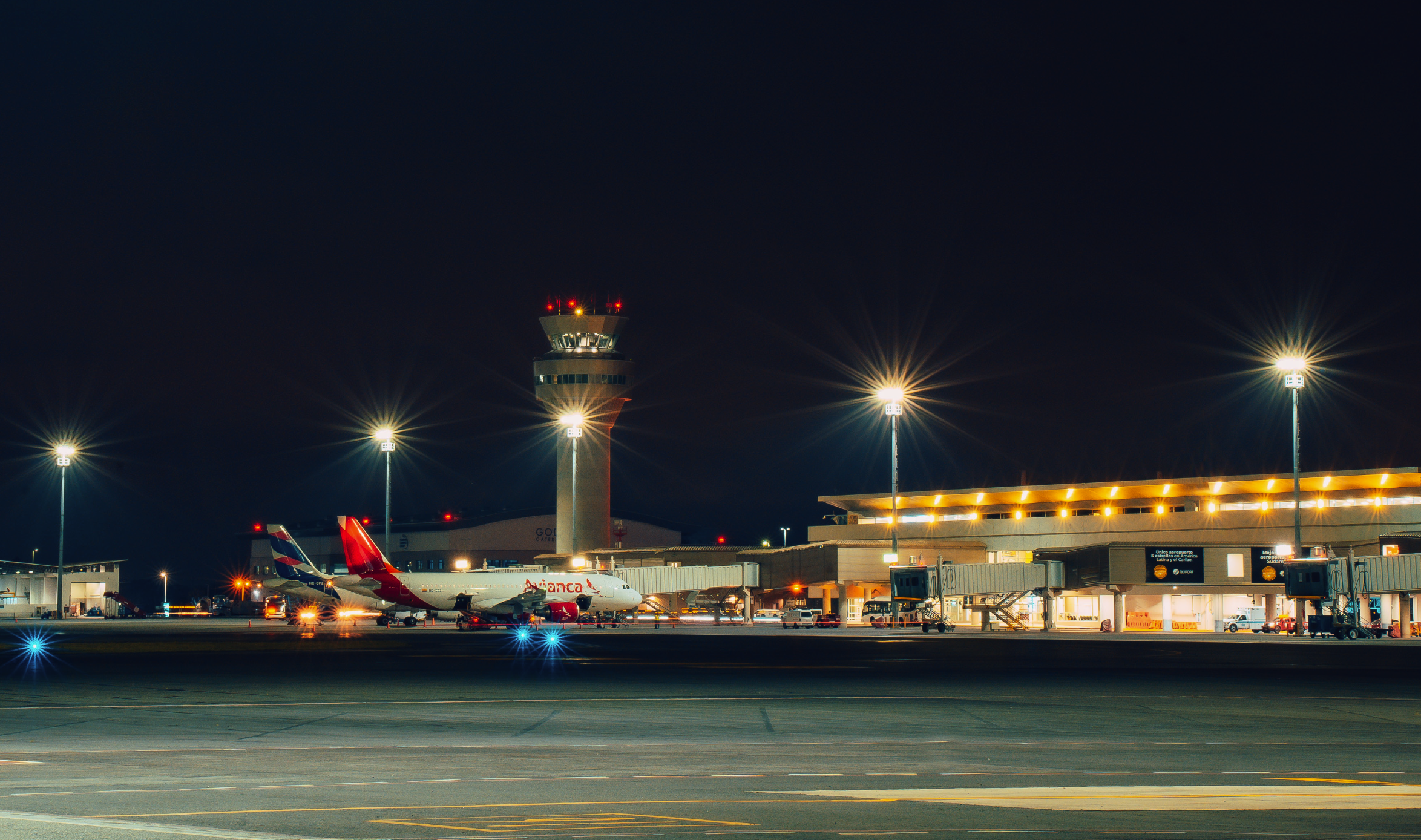
Airports Council International (ACI) World, in partnership with the leading travel technology company, Amadeus, announced the best airports in customer experience around the world, chosen by passengers, through the renowned Airport Service Quality (ASQ) awards, in which the Mariscal Sucre International Airport achieved recognition as the best airport in Latin America and the Caribbean in the category of 5 to 15 million passengers annually and the cleanest airport in the region in the corresponding measurements to 2023.

The ASQ program is recognized as the world’s leading airport customer experience benchmarking and measurement program. ASQ’s approach is based on live research conducted through surveys administered directly to travelers at the airport, recording their satisfaction levels on the day of travel. ASQ surveys cover more than 30 performance indicators across key elements of the airport passenger experience, providing the most complete picture of the passenger travel experience.
Ramón Miró, president and CEO of Quiport, the company in charge of the management of the Mariscal Sucre International Airport, said: “These awards are not only a cause for joy for our airport, but they are also important because they reinforce the confidence of passengers in the quality of our services. Additionally, they inspire us to continue innovating, implementing best practicesand continually seeking ways to further raise the standards of excellence in the airport industry. I want to express my sincere gratitude to each member of our team and the airport community, whose effort and dedication have made these achievements possible. These recognitions are a reminder that, together, we can reach the highest peaks and continue to be a benchmark in aviation on a regional and international scale.”
Quiport Corporation has participated in the ASQ program since 2018, which is part of ACI’s passenger experience program in which it currently holds level 5, the highest on the scale, along with Incheon airport in South Korea.
In the measurement carried out between January and December 2023, around 1,400 passengers completed the surveys that are applied to a sample of all flights, destinations and operation hours at the Quito airport.
The survey is made up of 53 questions that cover: satisfaction with each process / service, emotions, process times and passenger profile.
The most notable management areas of the Mariscal Sucre airport are:
–Cleanliness of the terminal, with a rating of 4.47 out of 5.
–Ease of movement within the airport that includes items such as: signage, screening processes, security filters, with a score of 4.33.
–Service vocation of airport staff covering: courtesy and help from all airport staff including airlines, security, immigration, customs, shops and restaurants, with a rating of 4.29.
ACI World General Director, Luis Felipe de Oliveira said: “We are delighted that in 2023 the ASQ program surpassed 400 participating airports in an all-time record, reflecting our members’ commitment to putting the passenger first. We also thank passengers who spent their valuable time providing feedback on nearly 600,000 surveys. The program’s global growth remarks the confidence placed in its live and scientific approach, making ASQ the reference standard for airport customer experience assessment in the aviation industry. The future success of airports depends on an unwavering commitment to delivering a stellar customer experience at every touchpoint. In an era where passenger expectations are quickly evolving, excellence in customer service is not just a goal, it is the key to ensuring that airports remain not just gateways, but memorable destinations in their own right.”
Airports Council International (ACI), the trade association of the world’s airports, is a federated organization comprising ACI World, ACI Africa, ACI Asia-Pacific and Middle East, ACI Europe, ACI Latin America and the Caribbean and ACI North America . By representing the best interests of airports during key phases of policy development, ACI makes a significant contribution to ensuring a global air transportation system that is safe, efficientand environmentally sustainable. As of January 2024, ACI represents 757 members operating 2,109 airports in 191 countries.
JetSMART takes off with its first inaugural flight to Peru
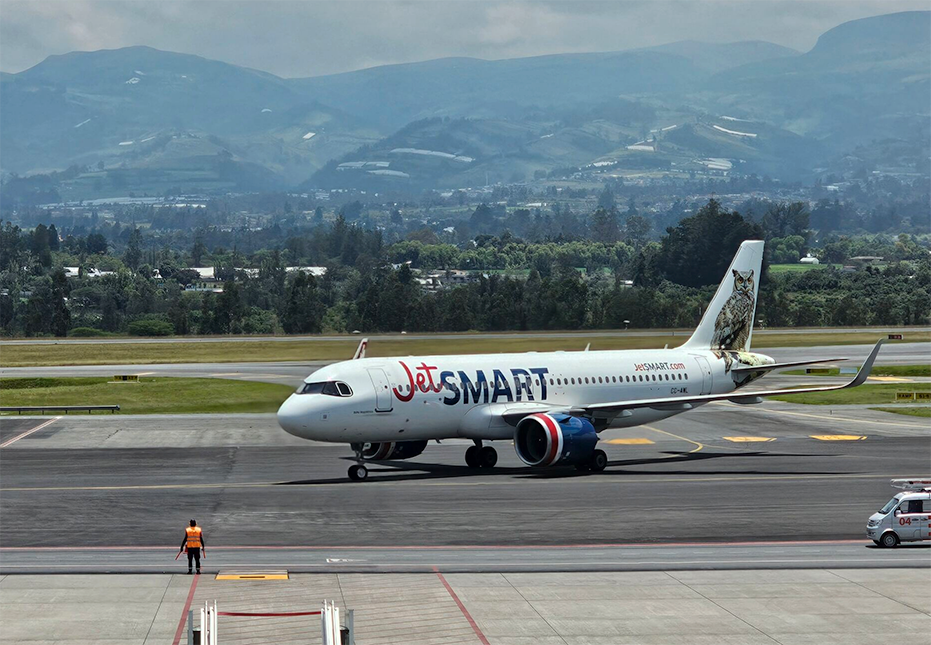
• This March 6, the ultra-low-cost airline that arrived in Ecuador at the end of 2023, begins its operations in the Ecuadorian capital with 3 destinations: Lima, Cuscoand Arequipa.
• The airline expects to transport more than 94 thousand passengers in the first year of operation in Ecuador.
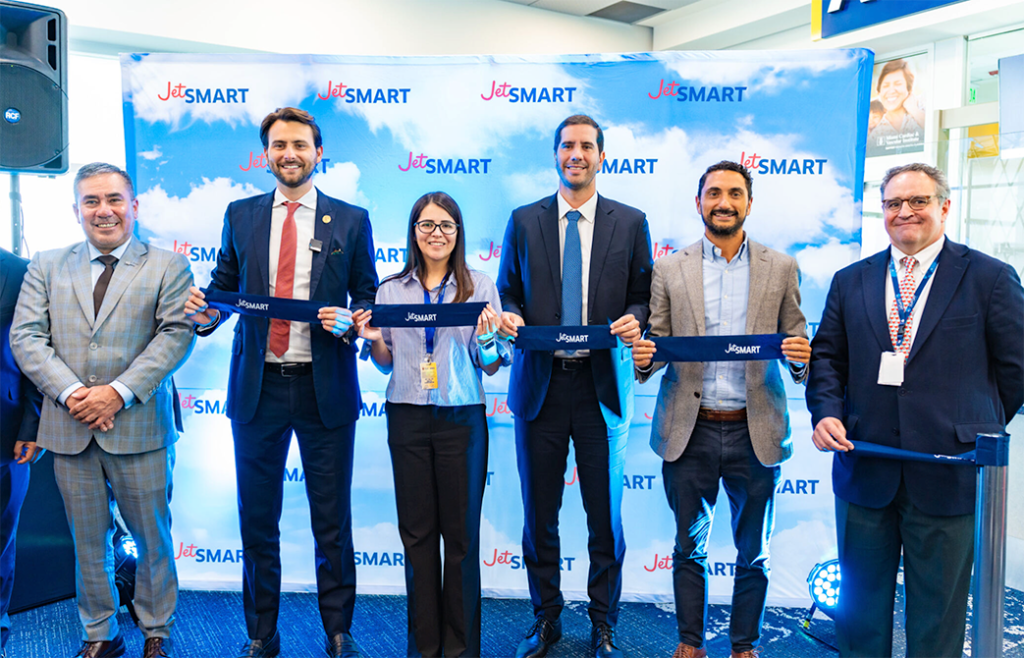
JetSMART, the renowned ultra-low-cost South American airline, started official operations this March 6 from Quito to Lima, Peru, which will allow also to connect to other two cities Cusco and Arequipa. This takeoff marks a significant expansion of the company in the region, being present in 8 countries in the region, seeking to strengthen air connections in South America.
On its inaugural flight to Lima, JetSMART had 98% passenger occupancy, marking its commitment to provide affordable and accessible travel options for Ecuadorian passengers. The routes to Ecuador go from Quito/Guayaquil to Lima and Quito/Guayaquil with a connection in Lima to Cusco and Arequipa. These routes were carefully selected to promote cultural integration between both countries. The objective is not only to unite destinations, but also to promote the exchange of customs and enrich the travel experience of passengers, highlighting the unique characteristics of each place.
During the event, Niels Olsen, Minister of Tourism, said that “we are committed to strengthening the airline sector through various initiatives, which include the reduction of ISD for international airlines and the signing of open skies agreements with several countries. Likewise, in the Urgent Law to Promote Tourism Activities we have proposed benefits such as a progressive reduction of the 5% surcharge on the cost of air fuel. This approach underlines our priority in supporting both the tourism and aviation industries, further promoting air connectivity. We extend a warm welcome to JetSMART to the Ecuadorian skies and wish them great success in their operation.”
Benjamín Dulanto, Commercial Manager of JetSMART Peru, expressed the expectations of starting with this first flight: “For JetSMART, it is essential to promote air connectivity in the region, which enhances bilateral tourism. With fares starting at $25.00 per section plus taxes, JetSMART establishes itself as one of the main low-cost airline alternatives in Ecuador, offering passengers the freedom to pay only for the services they need. This flight marks the beginning of a series of more than 312 flights that we plan to operate during our first year in Ecuador, consolidating our commitment to expansion and accessibility in the Ecuadorian air market.”
For his part, Ramón Miró, president and CEO of Quiport, said “I appreciate and thanksfor the effort and dedication of the entire JetSMART and Quiport teams to make this achievement possible. Air connectivity plays a crucial role in the development of our cities and its contribution to strengthening these relationships is invaluable. I wish to the airline much success in all its current and future operations, particularly this route that we are inaugurating today. I hope this collaboration is productive and benefits both communities.”
Likewise, Gustavo García Benavides, Peru’s Economic and Commercial Advisor in Ecuador, assured that “Ecuador is the third largest source market for international tourists to Peru. Thanks to the start of new air operations to Peru with JetSMART, connectivity will be strengthened, opening greater opportunities for commercial and cultural exchange between our nations. “In this way, the positioning of both countries in the region will be enhanced, generating greater demand in long-haul markets thanks to distinctive elements such as Peruvian products and experiences that include its famous gastronomy.”
JetSMART, recognized as the ultra-low-cost airline with the largest fleet in South America, is also distinguished by its commitment to biodiversity, represented in the distinctive animals that adorn the tails of its planes. Recently, the company was awarded the “World’s Youngest Aircraft Fleet Award” at the “ch-aviation World’s Youngest Aircraft Fleet Awards”, highlighting its fleet of aircraft with an average age of just 3.05 years, which makes it the fifth newest in the world.
Municipal institutions and civil society come together to prevent wildlife trafficking
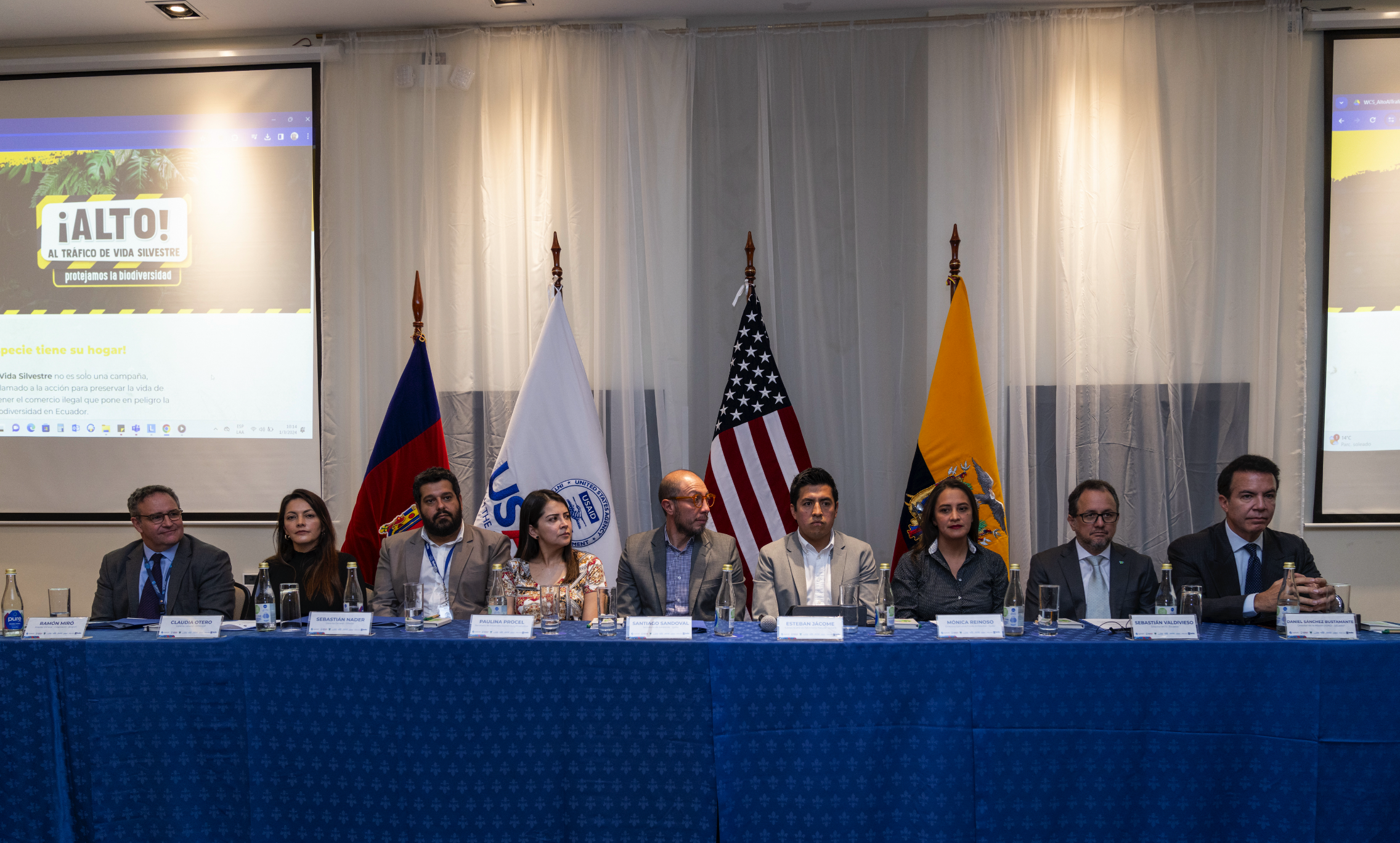
With this event we commemorate World Wildlife Day, a day to remember that people around the world depend on resources based on wildlife and biodiversity to meet our needs, from food to fuel, medicine, living place and clothing. To be able to enjoy the benefits and beauty that nature offers to us and our planet.
The Secretariate of Environment of Quito, the Metropolitan Public Airport Services Company of Quito (EPMSA), the Metropolitan Public Company of Mobility and Public Works (EPMMOP), Corporación Quiport (Quito Airport Concessionaire), WCS Ecuador and the Environmental Fund of the capital, signed an Interinstitutional Cooperation Framework, in order to develop and implement strategic actions aimed at preventing wildlife trafficking at the national level and in the DMQ.
The signing of the agreement took place with a press conference that took place in Quito, through which the joint agreements were formalized. “Airports, like the one in Quito, are the entrances and exits for wildlife trafficking, thereforethe need to strengthen the capabilities in the control and sanctions that appear in the Environmental Organic Code of Ecuador for this type of infractions against the environment”, mentioned Sebastián Valdivieso, director of WCS Ecuador.
This collaboration involves the strengthening of capabilities of AVSEC Airport Security staff at the capital’s airport to reduce potential events of illegal wildlife trafficking, as well as the development of technical documents that contribute to the control, detection and prevention of this environmental crime in airport and land terminals. Also, the joint dissemination of communication campaigns is contemplated to raise awareness and educate users of these means of transportation and citizens in general about the impacts and risks associated with wildlife trafficking.
“The experience of all the institutions that we have joined forces to combat this environmental crime gives us a broader perspective to generate comprehensive and necessary public policy for the protection and efficient management of our environment,” said Santiago Sandoval, Secretary of the Environment of Quito.
One of the first actions to be implemented will be the continuous diffusion of a video on all the screens of the Quito International Airport, to massively communicate the message: “In Ecuador, wildlife trafficking is a crime,” in order to alert users about this problem that threatens biodiversity.
Within the framework of this event, the new launch of the national campaign “Stop wildlife trafficking. Let’s protect biodiversity” was carried out. This is an initiative led by the Ministry of the Environment, Water and Ecological Transition, which since 2017 has positioned the country as a reference in strategic actions to combat the third largest global problem, wildlife trafficking.
Some additional information
Quito is the capital of biodiversity, part of Ecuador, one of the 17 most biodiverse countries in the world. The entire Metropolitan District is home to more than 500 species of birds, 102 species of mammals, 77 species of amphibians, 46 species of reptiles and 21 species of fish.
The Chocó Andino contains 11 of the 15 ecosystems of the Metropolitan District of Quito, where around 50,000 inhabitants live, among landscapes of forests, bushes and grasslands with extraordinary productive and gastronomic wealth. Seven of the eight areas of the Metropolitan Subsystem of Protected Natural Areas are located, the ACUS Mashpi, Pachijal, Yunguilla, Mojanda Cambugán, Camino de Los Yumbos, AIER Pichincha Atacazo, Andean Bear Ecological Corridor.
Quito Mariscal Sucre International Airport: excellence in punctuality
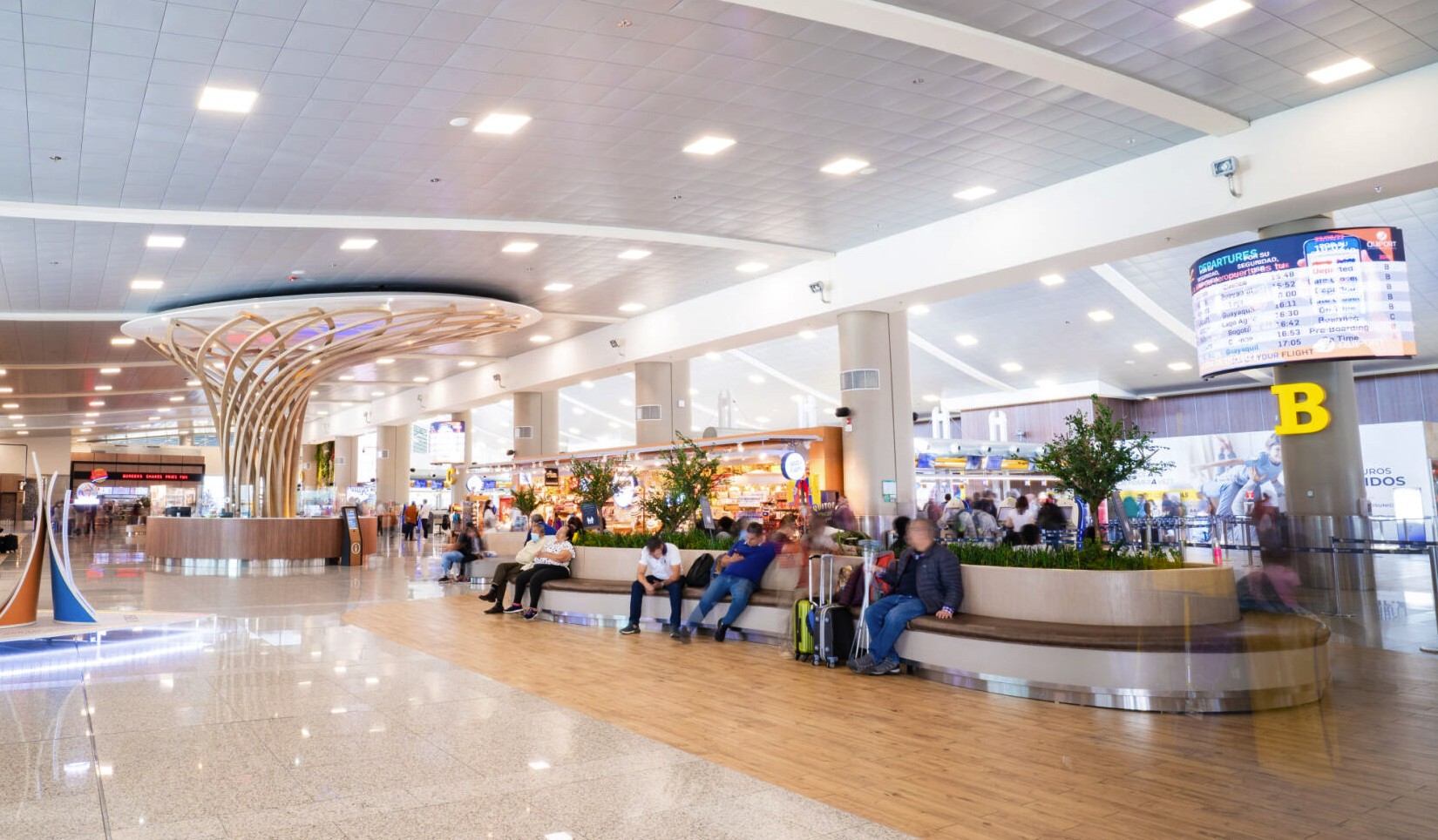
In the vertiginous world of aviation, punctuality represents a crucial distinctive. The delay of one flight can trigger a series of delays on several additional flights, which in many cases implies costs for airlines, airports and, of course, passengers.

In this scenario, Quito Mariscal Sucre International Airport wins the title of “Most On-TimeAirport” in the small airport category, according to the ‘2023 On-Time Performance Review’, by Cirium, the source of aviation analysis , which celebrates the operational excellence of the world’s airports and airlines.
Operational efficiency in figures: 90.29% departures.
The outstanding position of Quito airport is translated into concrete numbers: 90.29% of flights left its facilities on time. These figures reflect the airport’s dedication to optimizing every phase of the journey, from check-in to landing.
“The operation of an airport can be compared to a symphony orchestra in which all the musicians master their instruments to perfection, but an orchestra conductor is also required to set the exact times in which each group of instruments must enter and exit so that the entire orchestra executes the musical piece with mastery. Each of the companies that operate at the Mariscal Sucre airport is an expert in its work, and to this is added the extraordinary coordination carried out by our Operations team,” explained Ramón Miró, president and CEOof Corporación Quiport.
Technological innovation: biometric doors and revolutionary automation.
Excellence in punctuality is not only an achievement, but a philosophy for Quito airport. The implementation of cutting-edge technologies has been key to this success. Biometric doors and automated systems have revolutionized critical processes such as entry to security filters, international pre-boarding and immigration. These innovations not only streamline procedures, but also contribute to a safer and more efficient experience for passengers.
Evident commitment: definition of punctuality and international recognition.
The airport’s commitment is manifested in its precise definition of punctuality: a flight departure within 15 minutes of the scheduled time. These rigorous standards have placed Quito at the top of the list of the most punctual airports in the world.
Jeremy Bowen, CEO of Cirium, said: “This achievement is not just about punctuality, it is about the relentless pursuit of excellence and the incredible teamwork that is required every day… Congratulations to the entire team at Mariscal Sucre Airport for setting a global standard in aviation, their hard work, innovation and team spirit are truly inspiring and we look forward to them reaching even greater heights in the years to come.”
The results of the 2023 On-Time Performance review reveal that the winners, including Quito Airport, not only met expectations, but set new standards in operational performance and punctuality. With these credentials, Mariscal Sucre Airport embarks on 2024 with a promising reputation for operational excellence, consolidating its position as a benchmark in the global airport industry.
